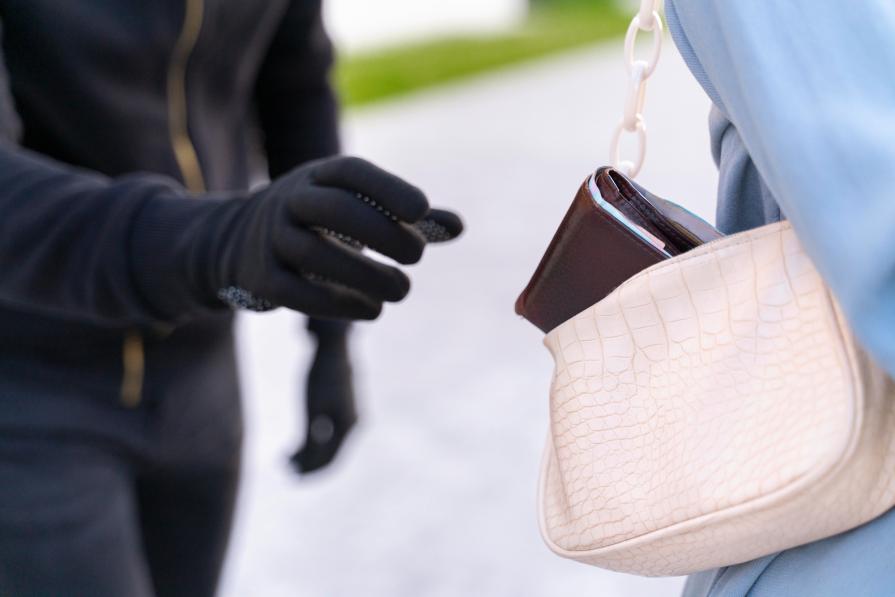When we go on a trip, we usually think about the fact that we will bring home positive emotions and gifts to friends and family. However, on this path, in addition to force majeure, there are tour operators and a variety of scoundrels who crave easy profit from our brother-tourist.
We talked to experts and prepared for our readers a list of countries where such incidents most often occur, and the most common scenarios of deception. Don't fall for the bait!

China
The Celestial Empire is known not only for a variety of places of interest, but also for a large number of counterfeit products. The most common among them are silks and pearls. To distinguish artificial from natural, it must be thrown on the table: the real one will jump like a ball, because this is the structure of pearls.
Silk is tested differently - it must be set on fire: synthetics will melt, rolling into a hard plastic ball, and smell unpleasant. The silk will burn, leaving behind ashes that smell of burnt wool. If the experiment is opposed by sellers, it is better to go shopping elsewhere.
Thailand
This eastern country is rich in precious stones – they can even be offered to purchase during a walk through the streets of local cities! However, if you do not have special knowledge of this part, it is better not to put yourself at risk. In addition, the export of unprocessed pebbles from Tai can result in a fine or imprisonment.
Another popular entertainment is associated with water transport - jet skis and jet skis. This is rented out, and on return they announce a breakdown and demand to compensate for the full cost of transport. The police are fed, it is pointless to ask for support: they will confirm that you have to pay, and even scare you with prison.
India
There are almost 30 million taxi drivers in the country, and everyone wants to make money. Official taxi companies paint cars in lime and red, if you have a car of a different color in front of you - get ready to pay triple.
You should also not resort to the services of dealers in terms of tickets to museums and entertainment events. And there are also thieving animals - both spontaneous, stealing food from the windowsill, and professional: monkeys are trained here so that they climb into the rooms of unsuspecting tourists through the balcony and steal everything that lies badly.
Sellers usually do not have change, so you need to have a lot of change in your pocket, and change coins in your purse.
Egypt
A huge number of pickpockets - we can say that this is the birthplace of pickpocketing. There was also a place for counterfeit products, namely papyrus: it should be purchased only in specialized stores, require a certificate, because the export of products from the original requires the approval of the customs authorities.
Well, do not forget about the camel: to climb on it costs some money (and maybe even for free), to go down - completely different. Otherwise, the animal will not sit down, jumping off it is fraught with bruises and fractures: the ship of the desert is high.
Viet Nam
In small shops, it is customary not to hang price tags, but to call the price aloud, and it may differ at times from the real one. If you buy food or water in such an institution, then for the fact that the first is hot, and the second is cold, they may require an additional payment.
Rent a car or a motorcycle? At the gas station, carefully look at the meter: the locals often "forget" to reset it after the previous client, which at the output will turn into extraordinary expenses for themselves and that guy.
The streets are replete with beggars, telling in a mixture of languages that they themselves studied in Moscow or their sister there. Such a "almost his guy" will drag himself around, fumble about local places of interest and rosin the brain, and then demand baksheesh for his imposed services.
Italy
In Europe, there is no tension with crooks either. Locals include non-standard articles in the menu of cafes and restaurants: you can be charged an additional fee for using a tablecloth, including AC, serving the menu. Of course, all this will be written in Italian, as well as a check. They can add 15-20 percent, so as not to arouse suspicion. So use translation apps.
The shortest way from point A to B in Italy by taxi takes several times more time than on foot - all to take "on the counter" twice as much as what is actually earned. Aggregators do not allow their taxi drivers to do this.
In large tourist cities, there are gangs of motorcyclists and even cyclists: they snatch things from tourists and leave in an unknown direction. Crowds of people do not bother: the helmet, speed and a sense of impunity protect well from identification.
Another feature is associated with a bargaining chip – two euros are similar to the old five hundred liras. After receiving change, check: perhaps you were paid with worthless numismatics.
Spain
Punishment for pickpocketing with a small - up to three hundred euros - damage is punishable in Spain with imprisonment for three days, after which the thief is released. Of course, he can immediately "repeat." Scammers use for their craft all the events held in the cities - carnivals and festivals. Barcelonans do not disdain the ladies of the oldest profession, either using them as bait, or teaching them their craft. Carmencita snuggled up to you and that's it, the wallet was gone.
In the metro of Spanish cities, you should also keep your ear to the ground: crooks work in groups of 3-4 people, there is a division by roles - one drags, another distracts, someone monitors the absence of police, the fourth carries away the prey as quickly as possible. There are many cameras, but in Barcelona alone, more than 500 thefts are recorded per day.
France

Do not take anything from strangers: this is not a gift or a souvenir, but an attempt to impose the purchase of all sorts of rubbish. Be prepared for the fact that you will not be left behind until you open your wallet.
In Paris and other cities, a scheme is practiced with a wallet or a thing allegedly dropped by you: the object is picked up and persistently shoved into your hands. While you are struggling with the temptation to grab the ownerless good, they climb into your pockets and clean you.
Another option: you are walking down the street, a person with a hotdog or coke bumps into you, soils your clothes and begins to crumble in an apology. Then there are two options: either he steers, and the locals begin to help you wipe off the sauce, simultaneously cleaning the pockets, or the culprit himself does everything alone.





